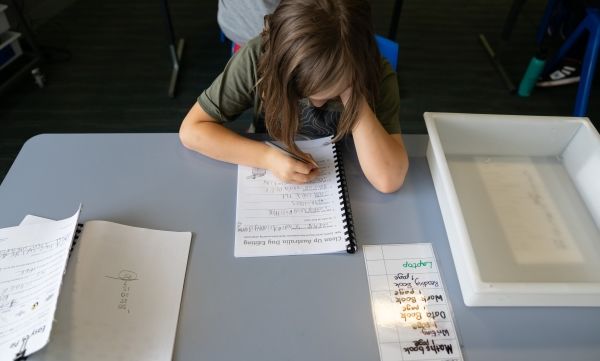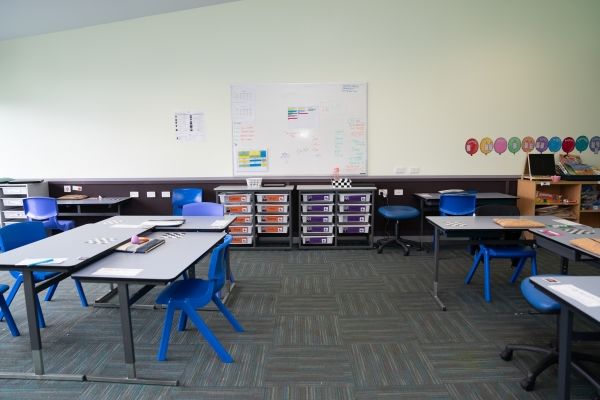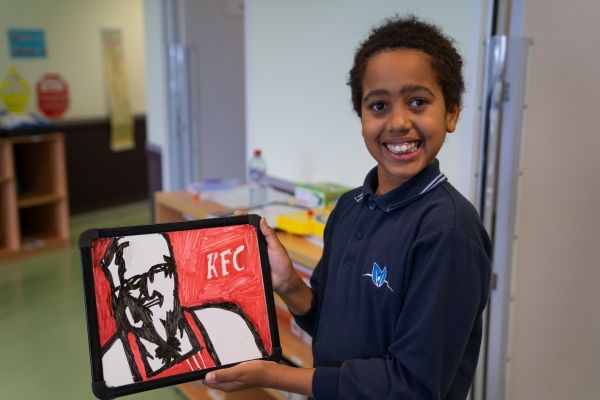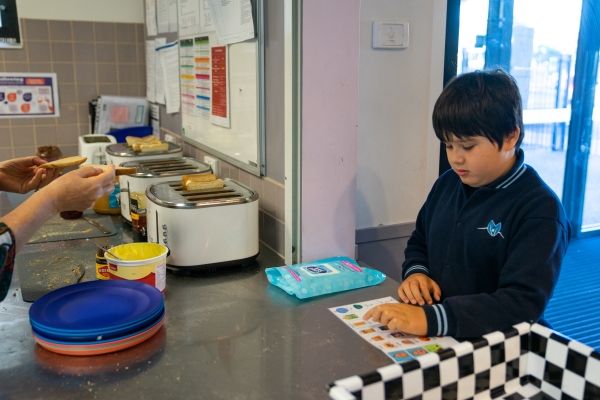EnglishThe Northern School for Autism has a number of Literacy Programs that cater for the diverse needs of our learners. They include: |
Whole Word Approach
Why do we use it?Many children with ASD will find it easier and more efficient to learn to read by first recognising whole words, and then working backward from the whole word to the sounds contained in words. For many of our students, learning the letters and their sounds is initially too abstract. | 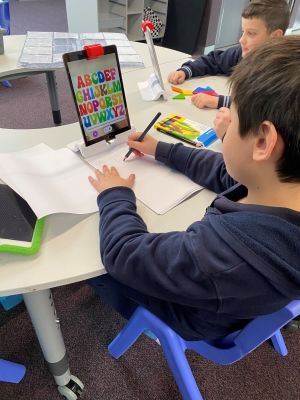 |
Comprehensive Literacy
| Comprehensive Literacy Instruction, by the Educator and Speech Pathologist Jane Farrall, provides a framework for teaching every student to read and write. This evidence-based approach is designed to support all learners, including AAC users, in developing meaningful literacy skills. One key focus of this approach is Shared Reading and Writing—a powerful way to engage students in rich literacy experiences alongside adults. During shared reading, a teacher or adult reads with students, pausing to highlight vocabulary, model fluent reading, and encourage interaction with the text while using student's AAC. Our Emergent Literacy Learners are those who are working in Levels A-D of the Victorian English Curriculum and engage in several early literacy activites, that may include:
Students who are at Foundation and above levels in the Victorian Curriculum are Conventional Literacy Learners and they may engage in the following learning activities:
Comprehensive Literacy Instruction is an evidence-based approach tailored to support the literacy development of students with disabilities, meeting them where they are in their literacy journey. This approach encompasses all student learning and promotes lasting growth in literacy skills for every student. By embedding these practices into daily routines, we aim to foster a love of reading and writing in every student. |
|
Little Learners Love Literacy
The Little Learners Love Literacy program is being taught in classrooms across the primary campus and is an evidence-based literacy program grounded in the Science of Reading, offering explicit, systematic instruction in:
· Phonemic awareness
· Phonics
· Fluency
· Vocabulary
· Comprehension
The program unfolds across seven-stages beginning with letter sounds to simple CVC words and then progressing through to advanced vowel patterns, phonics, and morphology. It uses engaging multisensory resources, including decodable fiction and nonfiction books plus games, chants, puppets, songs, and art activities that cater to diverse learning styles. We also have a range of fiction and non-fiction decodable texts that represent each stage of the program that allows students to apply their phonics knowledge promoting early reading success and support students to build on their fluency and comprehension. The program also provides detailed assessment and monitoring tools enabling teachers to tailor instruction to each student's individual needs and strengths.
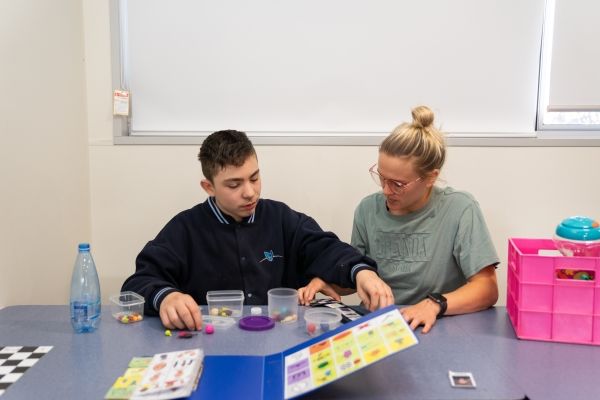 | 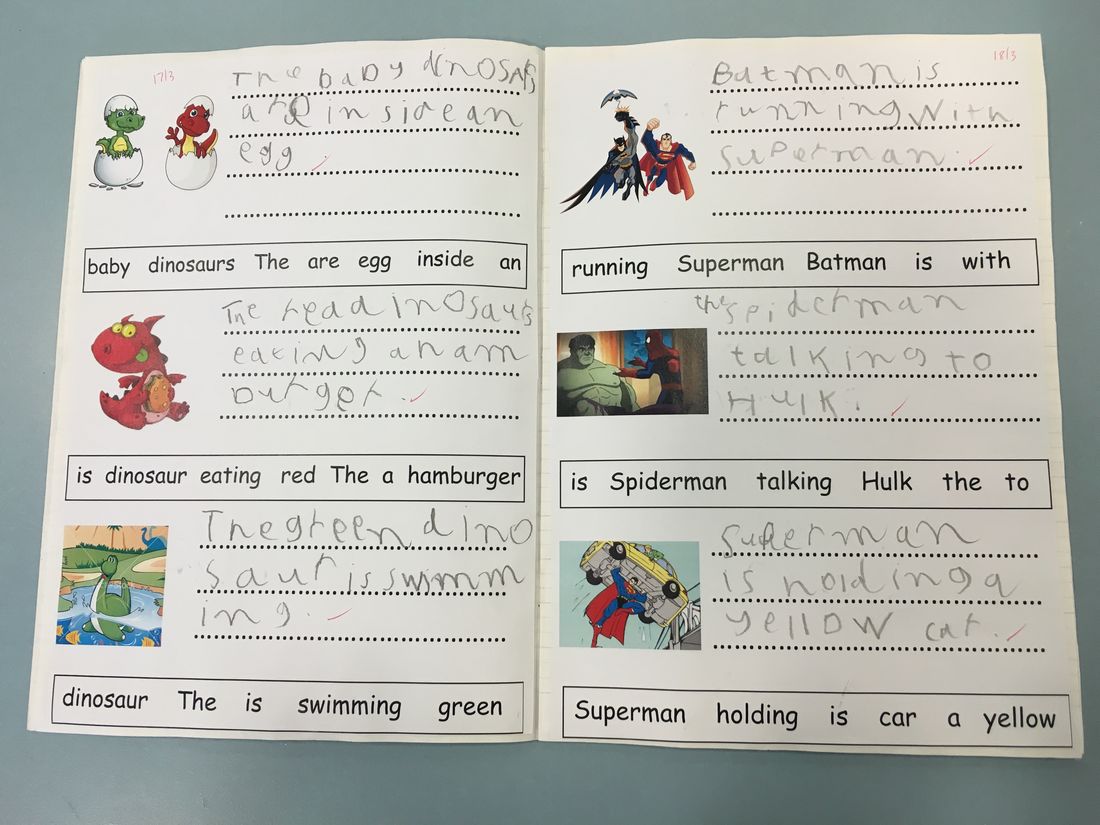 | 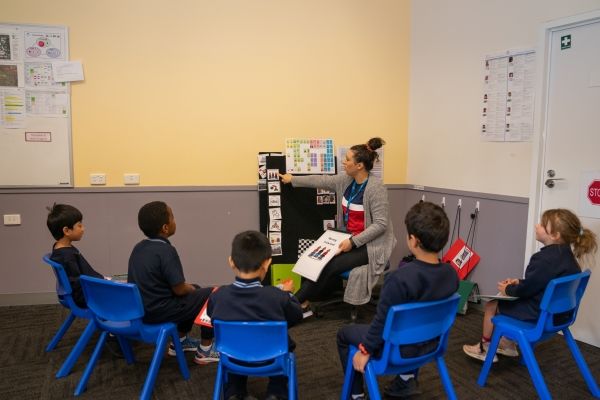 | 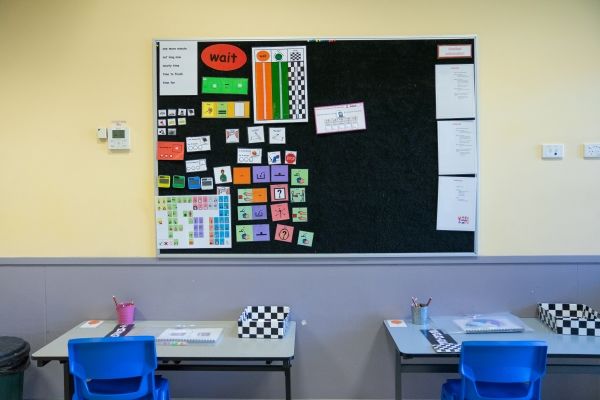 |
MultiLit
At the Lalor Campus, we have implemented MultiLit's InitiaLit-F program; an evidence-based literacy program designed to give students the essential skills and knowledge they need to become confident and capable readers and writers. The InitiaLit program provides explicit instructions in phonics, vocabulary, oral language, and comprehension. The approach combines current research and theory with program development and service delivery. It utilises student's current reading strengths to support their development of new reading and writing skills. The program can specifically target low-progress readers using current research that has shown to be most effective to improve student literacy outcomes.
InitiaLit-F focuses on two main components:
- Phonics, to systematically and explicitly teach the basic alphabetic code in a set sequence. In addition to learning letter-sound correspondences and how these are applied to reading and spelling, children will be introduced to common morphemes and simple grammatical concepts.
- Vocabulary, oral language and listening comprehension through quality children's literature. Detailed lessons, including writing tasks, are provided for each of the storybook titles selected for use with the program.
Curriculum content is addressed within the program during whole classroom lessons and further developed in teacher-led small groups and independent activities component. While lessons are scripted to ensure effectiveness of teaching programs, our teachers draw on their knowledge of their students to present the content in ways that are meaningful, engaging and responsive to individual needs. This balance of structure and flexibility within the program ensures that every student receives both high-quality instruction and personalised support.
